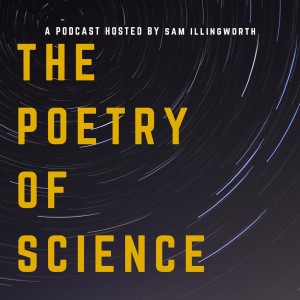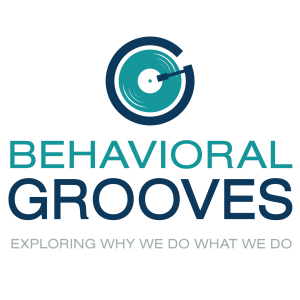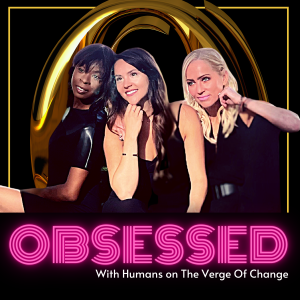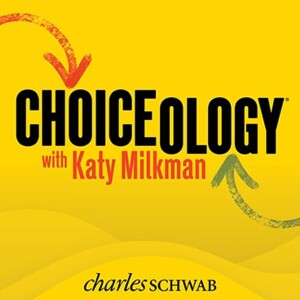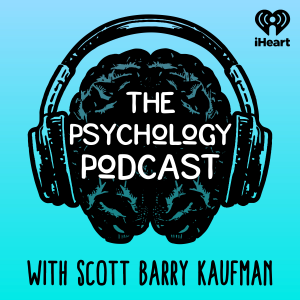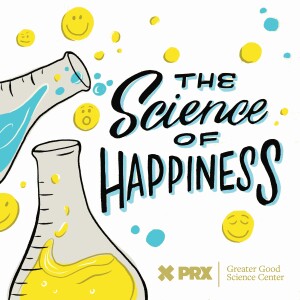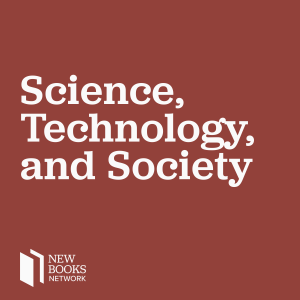

New Books in Science, Technology, and Society
https://feeds.megaphone.fm/LIT7700501435Episode List

157 Mangrum's Comical Computation (JP)
When does comedy become more than a laugh? Ben Mangrum of MIT joins RtB to discuss his new book, The Comedy of Computation: Or, How I Learned to Stop Worrying and Love Obsolescence (Stanford UP, 2025), which in some ways is organized around “the intriguing idea that human knowledge work is our definitive feature and yet the machines we are ourselves made are going to replace us at it.” Comedy has provided a toolbox (Charles Tilly calls them "collective repertoires") for responding to the looming obsolescence of knowledge workers.John's interest in Menippean satire within science fiction leads him to ask about about the sliding meanings of comedy and its pachinko machine capacity; he loves the way Ben uses the word and concept of doubling,; Ben explains how the computer may either queer (in an antisocial way) or get assimilated into romantic heteronormative pairings. John asks about Donna Haraway’s 1985 A Cyborg Manifesto and teh way it denaturalizes gender roles and the way new technological affordances (from the Acheulean axe that Malafouris discusses to the Apple watch) redefine human roles. Ben delves into the minstrelsy pre-history of the photo-robots going as far back as the late 19th century. They unpack the distinctively American Leo Marxian optimism of The Machine in the Garden (1964) that spreads back as far as the proto-robots like The Steam Man of the Prairies(1868) and good old Tik-Tok in the Wizard of Oz novels. John asks about double-edged nature of Ben’s claim that comic “genericity provides forms for making a computationally mediated social world seem more habitable, even as it also provides Is for criticizing and objecting to that world." First you get description says Ben--and then sometimes critique. John asks about the iterability of the new: how much of what seems new actually New New (in the sense of that great 1999 Michael Lewis book, The New New Thing)? Mentioned in the episode: The Desk Set a play William Marchand and a movie starring Katherine Hepburn. How might a computer be incorporated into the sociability of a couple? Her (Spike Jonze,, 2013) computer meets human makes the rom-com into a coupling machine. WarGames (1983( ends with Matthew Broderick and Ally Sheedy (not Ione Skye—silly John!) paired. But also with Broderick and the formerly deadly computer settling down to “how about a nice game of chess”? Black Mirror as the 2020’s version of the same dark satire as the 1950’s Twilight Zone. John asks about Stanislaw Lem’s Cyberiad, and the comic coupling of Kirk and Spock and the death-as-computer comedy of Douglas Adam’s Hitchhiker’s Guide to the Galaxy (1979). Leo Marx, The Machine in the Garden (1964). Dave Eggers: the joke structure as critique in The Circle and The Every. John Saybrook wrote in the New Yorker about an eye-opening conversation with Bill Gates in 1994. Istvan Csicsery-Ronay's Seven Beauties of Science Fiction on the “fictionalization of everyday life" Recallable Books: Elif Batuman The Idiot (2017) Richard Powers, Plowing the Dark (2000) Sally Rooney, Conversations with Friends (2017) Listen and Read here. Learn more about your ad choices. Visit megaphone.fm/adchoicesSupport our show by becoming a premium member! https://newbooksnetwork.supportingcast.fm/science-technology-and-society

Ashleigh Wade on How Black Girls Use Social Media
Peoples & Things host, Lee Vinsel, talks with Ashleigh Greene Wade, Assistant Professor of Digital Studies with a joint appointment in Media Studies and African American Studies at the University of Virginia, about her book, Black Girl Autopoetics: Agency and Possibility in Everyday Digital Practice. The book examines how black girls use social media posts to fashion self images that express the girls’ self-understandings, goals, and worldviews. Vinsel and Wade talk about the research methods and ethics of the project and end by talking about Wade’s current project on young social media influencers and how the digital content production and influencer industries are reshaping our conceptions of childhood. Learn more about your ad choices. Visit megaphone.fm/adchoicesSupport our show by becoming a premium member! https://newbooksnetwork.supportingcast.fm/science-technology-and-society

Cass R. Sunstein, "Imperfect Oracle: What AI Can and Cannot Do" (APS Press, 2025)
Imperfect Oracle is about the promise and limits of artificial intelligence. The promise is that in important ways AI is better than we are at making judgments. Its limits are evidenced by the fact that AI cannot always make accurate predictions--not today, not tomorrow, and not the day after, either. Natural intelligence is a marvel, but human beings blunder because we are biased. We are biased in the sense that our judgments tend to go systematically wrong in predictable ways, like a scale that always shows people as heavier than they are, or like an archer who always misses the target to the right. Biases can lead us to buy products that do us no good or to make foolish investments. They can lead us to run unreasonable risks, and to refuse to run reasonable risks. They can shorten our lives. They can make us miserable. Biases present one kind of problem; noise is another. People are noisy not in the sense that we are loud, though we might be, but in the sense that our judgments show unwanted variability. On Monday, we might make a very different judgment from the judgment we make on Friday. When we are sad, we might make a different judgment from the one we would make when we are happy. Bias and noise can produce exceedingly serious mistakes. AI promises to avoid both bias and noise. For institutions that want to avoid mistakes it is now a great boon. AI will also help investors who want to make money and consumers who don't want to buy products that they will end up hating. Still, the world is full of surprises, and AI cannot spoil those surprises because some of the most important forms of knowledge involve an appreciation of what we cannot know and why we cannot know it. Written in clear, jargon-free English and grounded in deep understanding, Imperfect Oracle provides a distinctly useful perspective on this complex debate. Learn more about your ad choices. Visit megaphone.fm/adchoicesSupport our show by becoming a premium member! https://newbooksnetwork.supportingcast.fm/science-technology-and-society

Mark Vellend, "Everything Evolves: Why Evolution Explains More than We Think, from Proteins to Politics" (Princeton UP, 2025)
How the science of evolution explains how everything came to be, from bacteria and blue whales to cell phones, cities, and artificial intelligence Everything Evolves: Why Evolution Explains More Than We Think, from Proteins to Politics (Princeton UP, 2025) reveals how evolutionary dynamics shape the world as we know it and how we are harnessing the principles of evolution in pursuit of many goals, such as increasing the global food supply and creating artificial intelligence capable of evolving its own solutions to thorny problems. Taking readers on an astonishing journey, Mark Vellend describes how all observable phenomena in the universe can be understood through two sciences. The first is physics. The second is the science of evolvable systems. Vellend shows how this Second Science unifies biology and culture and how evolution gives rise to everything from viruses and giraffes to nation-states, technology, and us. He discusses how the idea of evolution had precedents in areas such as language and economics long before it was made famous by Darwin, and how only by freeing ourselves of the notion that the study of evolution must start with biology can we appreciate the true breadth of evolutionary processes. A sweeping tour of the natural and social sciences, Everything Evolves is an essential introduction to one of the two key pillars to the scientific enterprise and an indispensable guide to understanding some of the most difficult challenges of the Anthropocene. Learn more about your ad choices. Visit megaphone.fm/adchoicesSupport our show by becoming a premium member! https://newbooksnetwork.supportingcast.fm/science-technology-and-society

Vanessa Warne, "By Touch Alone: Blindness and Reading in Nineteenth-Century Culture" (U Michigan Press, 2025)
By Touch Alone: Blindness and Reading in Nineteenth-Century Culture (U Michigan Press, 2025) by Dr. Vanessa Warne demonstrates how reading by touch not only changed the lives of nineteenth-century blind people, but also challenged longstanding perceptions about blindness and reading. Over the course of the nineteenth century, thousands of blind people learned how to read by touch. Using fiction, essays, letters, and speeches authored by blind readers, By Touch Alone traces the ways in which literacy changed blind people's experiences of education, leisure, spirituality, and social engagement. Analyzing records of activism and innovation as well as frustration, this study documents the development of an inkless book culture shaped by blind readers’ preferences and needs. While By Touch Alone features the writing and ideas of an understudied community of nineteenth-century blind authors, innovators, and activists, it also engages the work of sighted authors such as George Eliot and Rudyard Kipling to explore the culture-wide effects of reading by touch. The emergence of a new category of readers who did not rely on sight to read prompted sighted people to reimagine blindness and adopt more progressive attitudes toward blind people. In our own era, one characterized by the increasing digitization of our reading lives, Vanessa Warne’s exploration positions scholars and blind readers to navigate present-day developments and shape the future of their reading lives. A carefully contextualized study of how reading by touch shaped Victorian culture, By Touch Alone adds new chapters to the history of disability and reading. This interview was conducted by Dr. Miranda Melcher whose book focuses on post-conflict military integration, understanding treaty negotiation and implementation in civil war contexts, with qualitative analysis of the Angolan and Mozambican civil wars. You can find Miranda’s interviews on New Books with Miranda Melcher, wherever you get your podcast Learn more about your ad choices. Visit megaphone.fm/adchoicesSupport our show by becoming a premium member! https://newbooksnetwork.supportingcast.fm/science-technology-and-society
Create Your Podcast In Minutes
- Full-featured podcast site
- Unlimited storage and bandwidth
- Comprehensive podcast stats
- Distribute to Apple Podcasts, Spotify, and more
- Make money with your podcast
